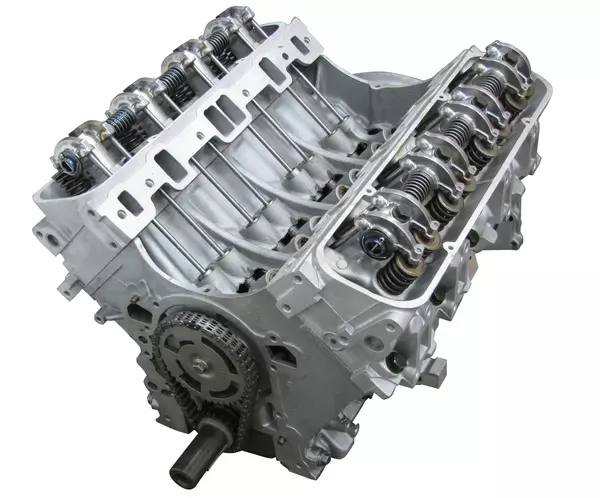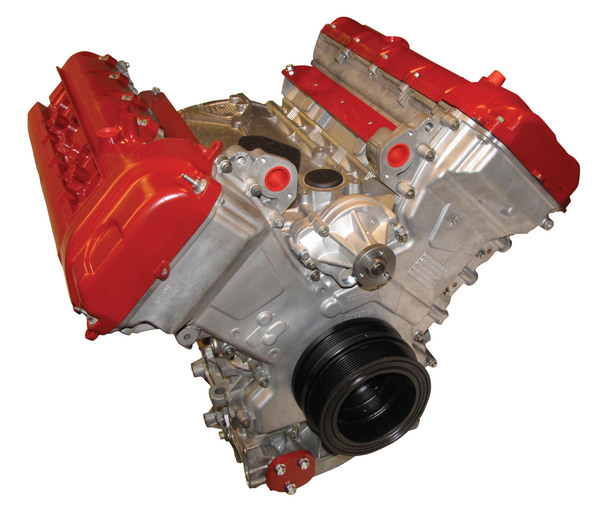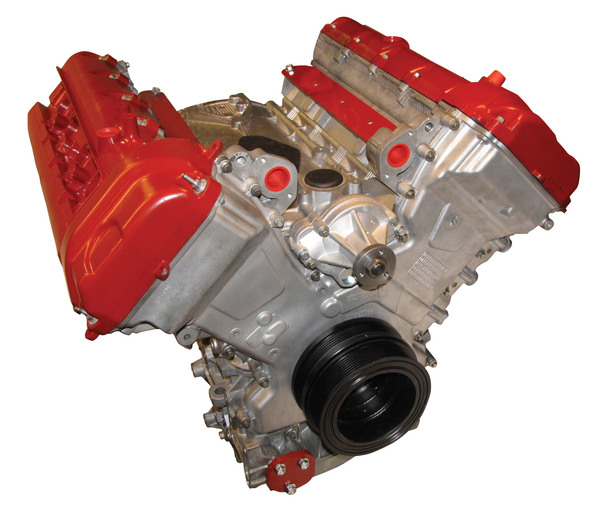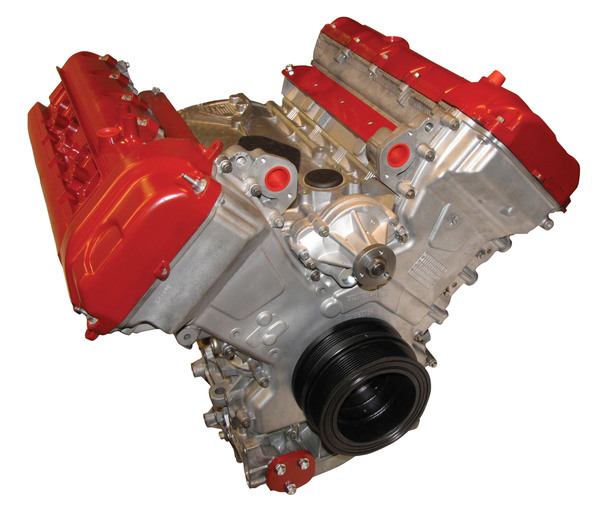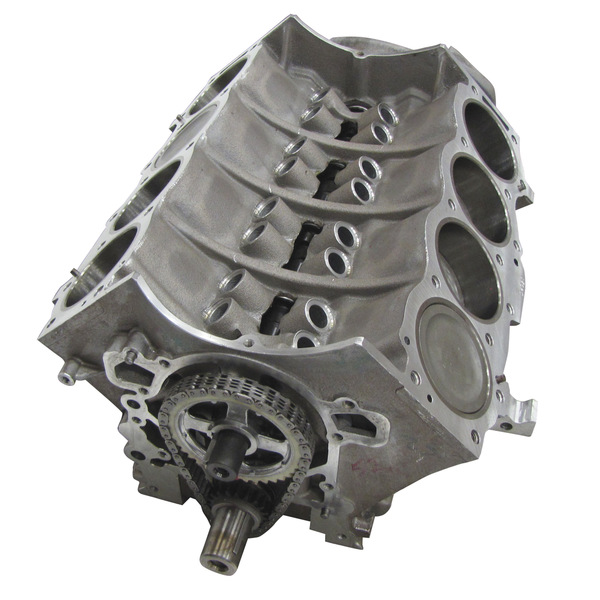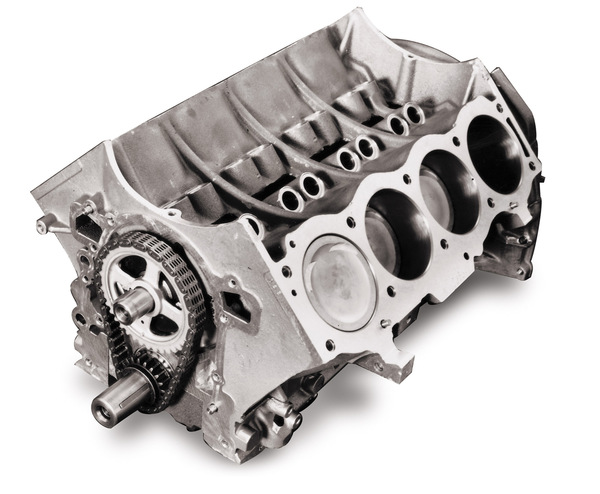EXCLUSIVE 3.9, 4.0, 4.6, 4.2 and 4.4-liter Short & Long Block Engines
Finding quality replacement engines for older and newer Land Rover or Range Rover vehicles has not always been an easy task.
Problem Solved!
Our new Land Rover Engine Rebuild Program offers high-quality 4.0, 4.6-liter BOSCH and GEMS engines as well as legacy 3.9-liter engines - all with improved design and function over the Original Equipment engines! What's more, we now offer late model 4.4-liter long blocks (Jaguar engine) and 4.2-liter supercharged long blocks (Jaguar engine) for Range Rover Full Size L322, LR3 and Range Rover Sport!
As the earlier model vehicles have aged, original 4.0, 4.6 and 3.9-liter Land Rover and Range Rover engines are often plagued by a combination of problems.
Common Land Rover 4.0 / 4.6 / 3.9-Liter Engine Failure Problems & How They Are Solved With Atlantic British Engines

Aluminum Blocks & Steel Piston Sleeve Age and Wear: Factory design on these Land Rover engines featured an all-aluminum block casting fitted with steel piston sleeves. Repeated heat expansion of these two separate metals (aluminum and steel) often lead to leaking piston sleeve cylinders. Most often, pressure leaks occurred where compression gasses escaped around the edges of the sleeves and into the engine block. The prolonged effect of this gas leakage often lead to "slipped sleeves", where the piston sleeves loosen and actually drop/move within the block housing. The result is a failed engine that often leaks coolant into the block.
Our remanufactured 4.0 / 4.6 / 3.9-liter engines correct this sleeve pressure seal problem by machining out the defective sleeves and replacing them with all new, top hat sleeves that feature a specially-designed top flange that secures/seals the sleeves with the engine heads, preventing gasses from escaping around the sleeve tops and ensuring the sleeves will not loosen or drop over time. Each original engine block is parallel-decked to the main bearing saddle, which provides even compression across the entire block. These process modifications protect against compression gas leaks while improving the performance of the Land Rover short block or long block engine. Find the engine you need by looking at the list below.
Our premium engine rebuilds match original Land Rover short blocks to a set of brand new engine components which include specially-designed cam bearings as well as new camshafts, timing chains, timing gears, rod bolts, piston rings, flanged sleeves, crossbolt seals, main seals, main bearings, rod bearings, freeze plugs and a brand-new polished crankshaft.
BOSCH or GEMS?
When purchasing a Land Rover engine, it is important to determine whether you vehicle make and model uses a BOSCH engine or a GEMS engine. Please view our BOSCH vs. GEMS tech tip page and watch our instructional video for further clarification. If you have any doubts, do not hesitate to call one of our expert sales representatives.
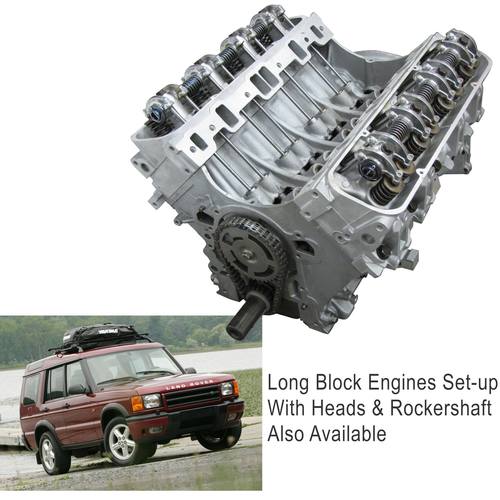
Warranty
Buy with confidence! Each of our engines comes with a 12-month, unlimited mileage warranty. See our Warranty & Installation Instructions for full details.
Core Refunds and Shipping
Your new engine comes in a custom-designed, ultra-durable crate that is easily reused to return your old engine core. Shipping an engine has never been easier!
- Our 3.9, 4.0 and 4.6-liter Land Rover and Range Rover short block engines come with a $950 core charge ($250 crate / $700 block core) refunded on return of your old Rover engine block core in our provided crate. 3.9, 4.0 and 4.6-liter long block engines include a $1,450 core charge ($250 crate / $700 block core / $500 for two engine heads).
- 4.2 and 4.4-liter long block engines have a more comprehensive core value schedule. Click Here to review that schedule.
For additional information on our core charge refunds please see the Core Refund and Information Page.
Tech Tip: Oil Pressure, Stuck Valves & Overheating: 3.9, 4.0 and 4.6 Rover engines run at relatively low oil pressure. Aging engines that have cycled dirty or gritty oil at any point in their lifespan can collect grit in the oil pump pressure valve. Since these engines run at low relative pressure, it does not take much grit to "stick" the oil pressure valve spring permanently open, causing consistent and damaging engine overheating. BEFORE installing any new engine, its important to check your oil pressure and ensure your oil pressure valve is clean and functioning properly (especially if your old engine exhibited frequent overheating problems.) Failure to correct oil pressure problems when installing a new engine may result in the same overheating and damage with your new engine and void its warranty.






